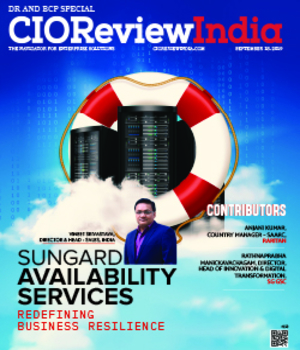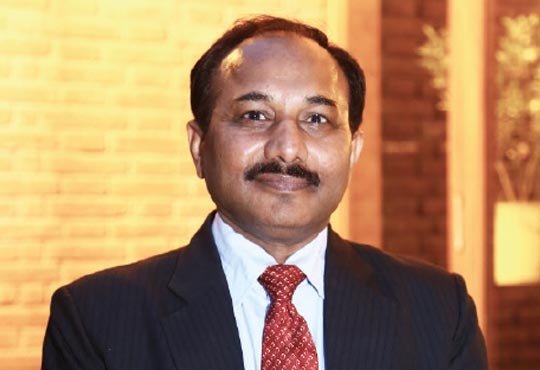Currency Demonetisation - Next Challenge is Cyber Security
Ashok Jade, CIO, Shalimar Paints | Monday, 06 February 2017, 09:54 IST
 9th November 2016 was a big day for India. Prime Minister took a bold step of scraping all existing Rs.500/- and Rs.1000/- currencies looking forward to solve problems like black money, corruption, terrorism and so on.
9th November 2016 was a big day for India. Prime Minister took a bold step of scraping all existing Rs.500/- and Rs.1000/- currencies looking forward to solve problems like black money, corruption, terrorism and so on.
People are appreciating this step as a “Surgical Attack” and I too appreciate such a bold step but unfortunately, no one is talking about risks and problems which will suddenly erupt to a large extent.
But question is – is Government ready to handle it?
Limitation on cash transactions will surge e-transactions as use of debit card, credit card, e-wallet etc will increase. Consequently this will lead to cyber security implications.
Cyber security risk is growing universally day by day. Organised communities of cyber criminals are growing as well and they are targeting consumers, banks, financial institutions at large.
Everyone is well aware of recent attacks on banking systems, data leakages and breaches in government departments, online fraud etc.
These breaches are examples of how vulnerabilities in processes and IT systems can be possible, even in our financial institutions which need the strongest cyber security. Although RBI has its own cyber security cell and must have taken some action but there is no statement from government on the incident.
What does this indicate?
One, our banking systems and financial institutions are not fully prepared to handle cyber attacks. They are way behind on the technology front to stop such attacks. They aren’t capable of minimizing losses after attacks either.
Second, is Government really prepared to enforce required cyber security norms and systems? Maybe, we don’t know.
How government is going to handle such attacks and challenges? This is the prime question, not only from bank’s perspective but consumer’s perspective as well.
Infrastructure is another issue.
30 percent of ATMs are not working and most of them are on a older version of OS which is weak and vulnerable. We are regularly witnessing various security breaches in these machines like weak connectivity in urban and rural areas, which is a main hurdle for online transactions.
Next important issue is, country’s cyber law which hasn’t really reached required maturity. It is not strong enough to protect consumer interests and rights. Further trouble is, officials and political leaders don’t understand it, as whenever data leakages or attacks and incidents happened in past, officials looked at them as a regular and unimportant matter.
With these new steps, not only cyber thieves but our neighbouring states will also pour lot of money and efforts to break our economy. Government, Finance ministry, RBI need to be on their toes now. These agencies will need a robust and proactive cyber security strategy to ensure government's policies will eventually deliver their promise.
Only time will prove whether PM’s decision was perfect and well-thought for future challenges or not! It’s not time to celebrate or cry, but to prepare for next challenge.
CIO Viewpoint
By Michael R. Galin, Director - Risk Management, TELUS
A Demanding Environment For Machine Learning
By Shailendra Choudhary, Vice President and Head-IT, Interarch Building Products Pvt. Ltd.
Adopting The Right Disaster Recovery Techniques
By Todd Thomas, CIO, ARA Diagnostic Imaging
CXO Insights
Impact Of Pandemic On Different Countries
By Sonica Aron, Founder & Managing Partner, Marching Sheep
Why The Data Center Is At The Heart Of The...
By Niladri Saha, Head - Primary Storage, Modern Infrastructure Team, Dell EMC, India
Alternative Ways Of Approaching Incident...







